The fossils representing the first, non-avian dinosaur with feather-like structures found in South America has been returned to Brazil. The Ubirajara fossil specimen has been repatriated from Germany. This prized but controversial fossil, was named and described in 2020 (Ubirajara jubatus).
Since the scientific publication, campaigners, including many prominent Brazilian scientists, had requested that this dinosaur be returned home. One of the leading advocates for the repatriation was Professor Aline Ghilardi of the Federal University of Rio Grande do Norte (UFRN).
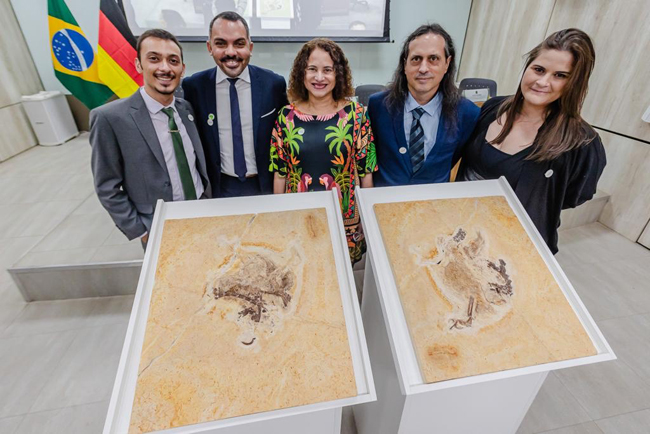
To read the Everything Dinosaur blog post about the formal scientific description of Ubirajara: One Very Flashy New Dinosaur Ubirajara jubatus.
The Return of Ubirajara jubatus
The excitement in Brazil sparked by the scientific publication turned to dismay when it was realised that the fossil had been removed from the country. The materials and methods section of the paper stated that the specimen had been taken out of Brazil in 1995.
The first Brazilian law dealing with the protection of fossils was created in 1942. The legislation permitted fossils to leave the country, but authorisation was required. Subsequently, the law was strengthened, and it outlined how fossils should be collected, exported and insisted that Brazilian scientists should be involved in the study of such artifacts.
Following a campaign, the paper describing U. jubatus, the first non-avian dinosaur to be found in the Southern Hemisphere with feather-like filaments was withdrawn.
After the allegations of illegal smuggling, it was agreed to return the specimen to Brazil. The scientific name Ubirajara jubatus was removed from the International Commission on Zoological Nomenclature (ICZN) registry. The dinosaur’s name currently is regarded as invalid. Whether the scientific name for this little theropod is to be retained has yet to be decided.
UbirajaraBelongstoBR
The repatriation was assisted by a highly successful social media campaign using the hashtag UbirajaraBelongstoBR.
An investigation was launched in Germany. This culminated in the recognition of the misconduct and unethical behaviour of the researchers involved. With that, finally, it was decided to return the dinosaur home in July 2022.
To read more about this decision: Unique Dinosaur Fossil to be Returned to Brazil.
Fossils and Colonialism
The controversy surrounding Ubirajara highlights a growing trend within palaeontology for assessing the impact of colonialism and the removal of fossil material from countries to America and Europe.
Professor Aline explained:
“Colonialist attitudes influence our science and make it a worse science and the results biased.”
The Return of the Ubirajara Fossil Specimen
The social media campaign played a significant role in the successful repatriation. The return of the Ubirajara fossil specimen was achieved through a collaboration with the public, governments and palaeontologists.
A spokesperson commented that this campaign highlights how the public wants to engage and participate with scientific debate. The return of Ubirajara will hopefully inspire other scientists to engage in such campaigns, helping to improve palaeontology by making it more inclusive, fair and ethical.
Everything Dinosaur acknowledges the assistance of a media release from the Federal University of Rio Grande do Norte in the compilation of this article.
Visit Everything Dinosaur’s website: Everything Dinosaur.


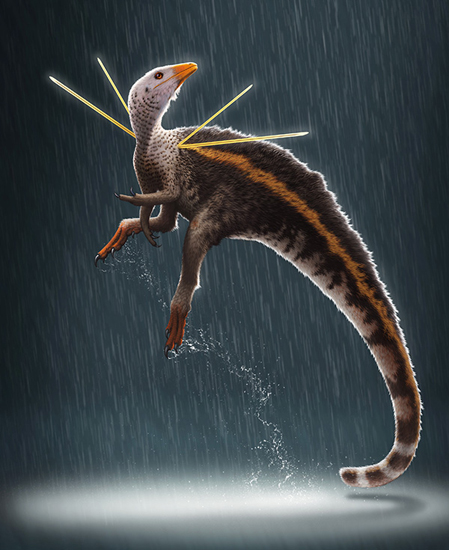
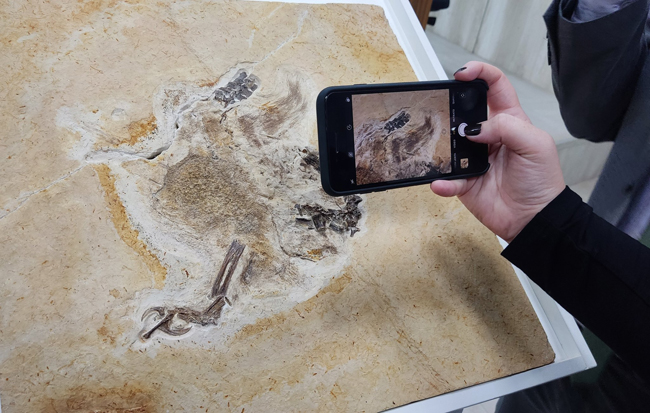
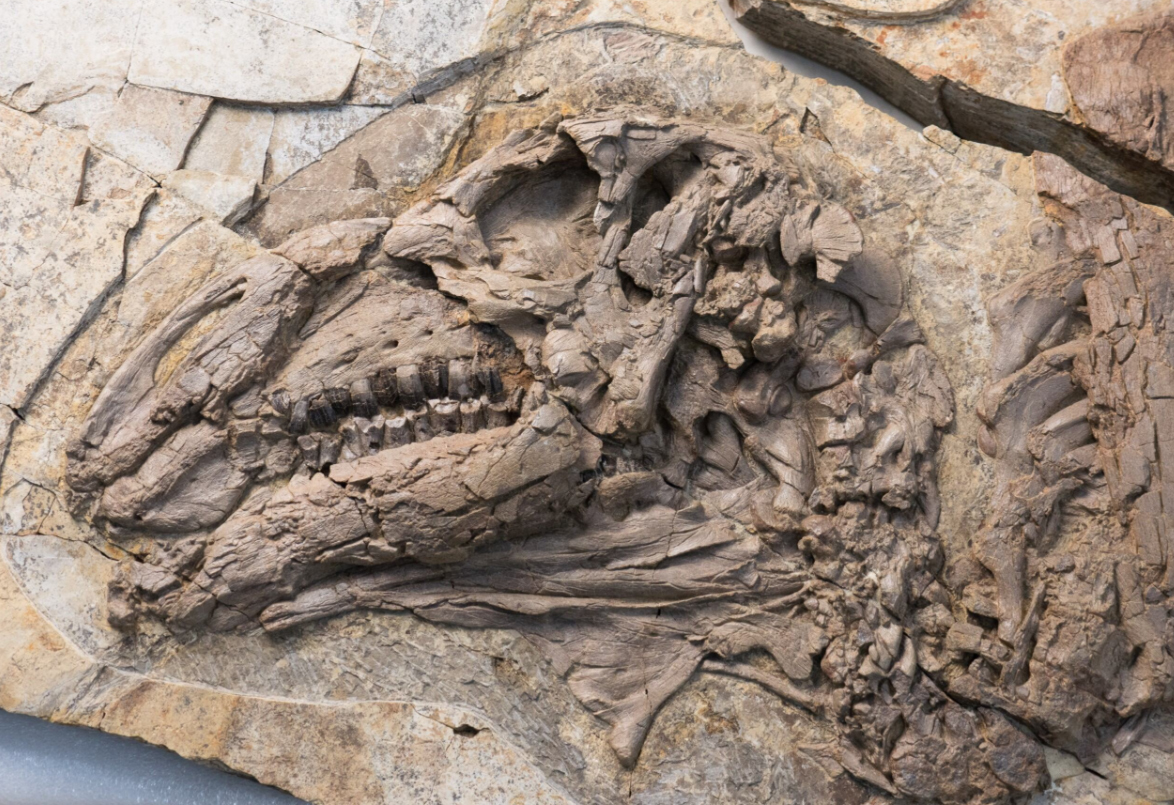
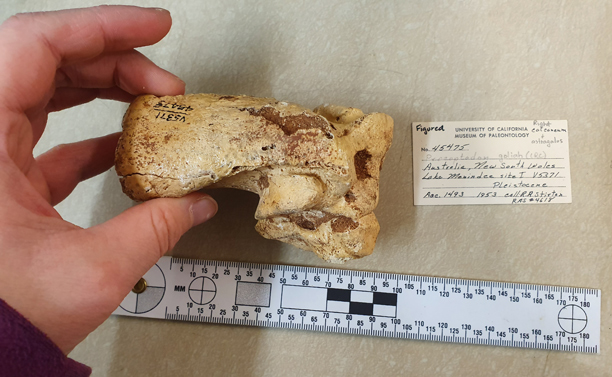
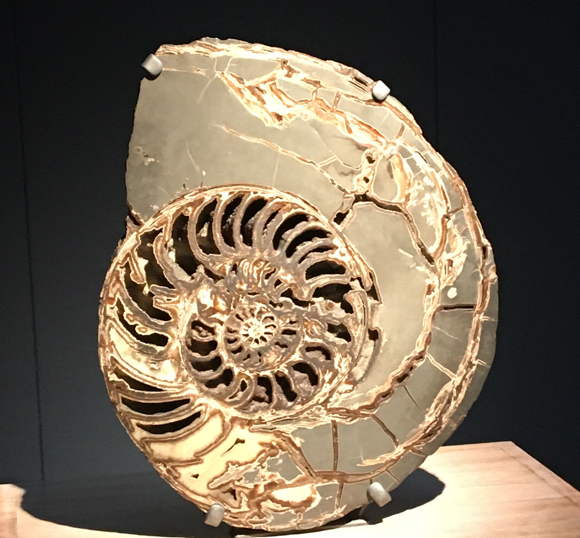


Leave A Comment